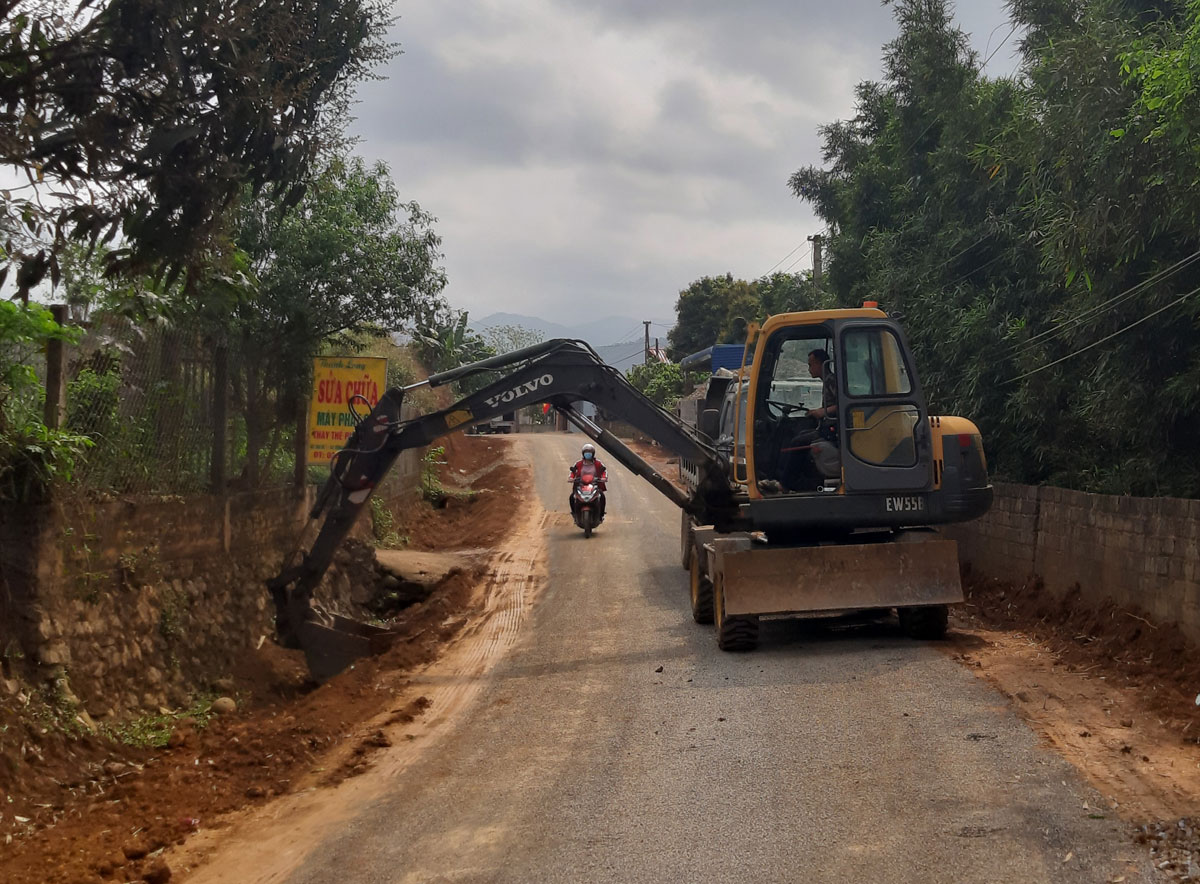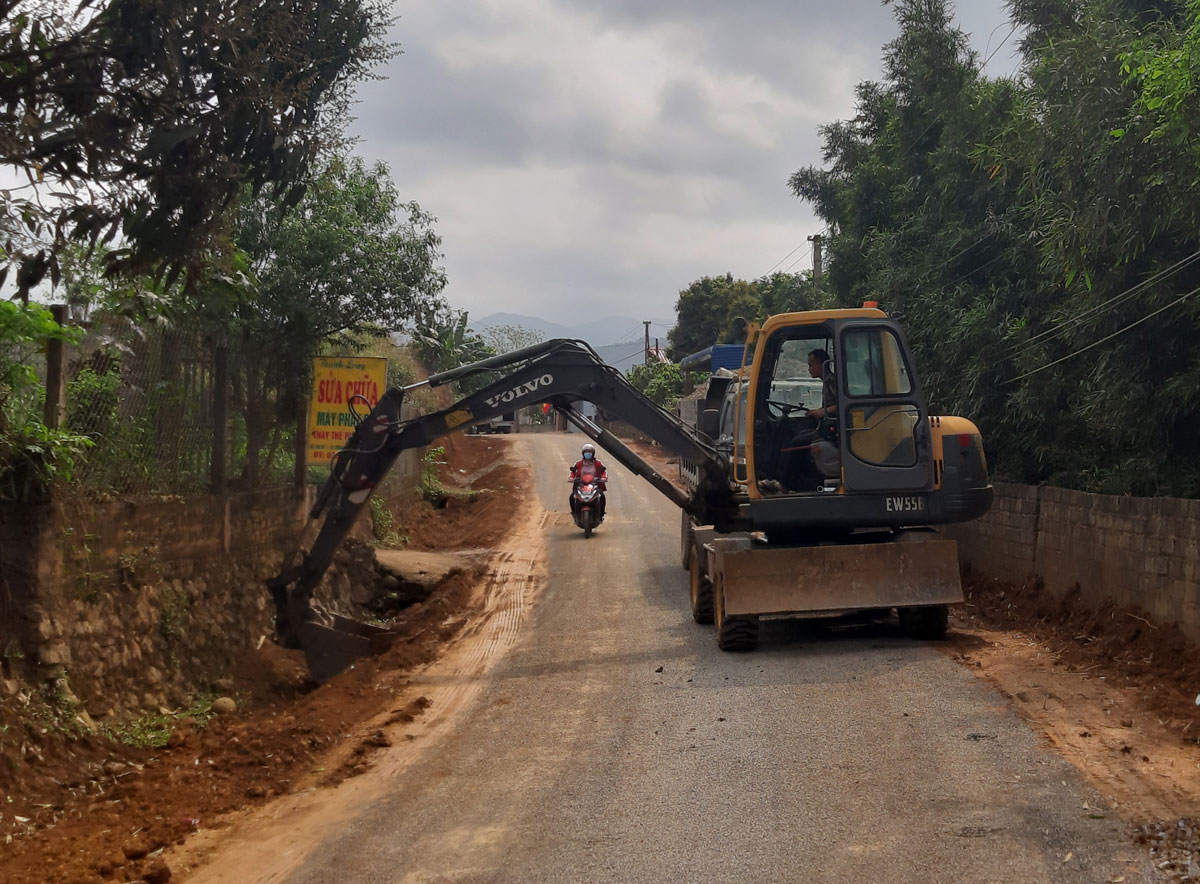(HBO) - Dung Phong commune in the centre of Muong Thang area in Cao Phong district enjoys advantages for socio-economic development.
The commune has been selected to be an example to develop into a new-style rural area. In 2015, it met the criteria to become a new-style rural area thanks to the effective leadership of the commune Party Committee and people’s active participation.
The road to Dung Phong commune, Cao Phong district, is upgraded, contributing to the local socio-economic development.
Over the recent years, the Party members and officials have played the role of implementing political tasks and building a new-style rural area.
Bui Van Thuong, Deputy Secretary of the commune Party Committee, said that the locality has over 237 party members in 11 cells. Following the direction of the higher Party Committees, the commune Party Committee assigned specific tasks to officials and members in implementing political tasks, Party resolutions the Politburo’s Directive No.05 on the acceleration of the study of and adherence to President Ho Chi Minh’s ideology, morality and lifestyle.
The commune has recorded positive changes in all aspects of Party building work and the political system. Party cells regularly hold meetings to review, assess and rate the performance of Party members, leaders, and managers.
The commune Party Committee has been leading the restructuring of crops and livestock, developing services, and contributing to creating jobs for local workers. With a total natural area of over 1,000 ha including over 700 ha of agricultural land, the commune now has converted the inefficient rice cultivation area to sugarcane and citrus fruits. It also attaches importance to the development of handicrafts, services, business, and trade.
Currently, Dung Phong continues to mobilise people's engagement in satisfying the criteria of a new-style rural area. The commune has called on people to donate land for the construction of rural transport projects, in-field roads, and other public works.
Over the last three years, people in the commune have contributed 3,000 working days to building roads. Currently, as many as 95% of the households in the commune can access hygienic water, and all households use electricity from the national grid. Environmental sanitation has enjoyed more attention, and people's quality of life improved greatly.
Bui Van Lien, Chairman of the commune People's Committee, said that the commune’s average per capita income reaches 53.6 million VND per year; its poverty rate has been brought to 6.06%.
He said that the commune targets to develop a new-style rural area model and to further improve people’s quality of life.



